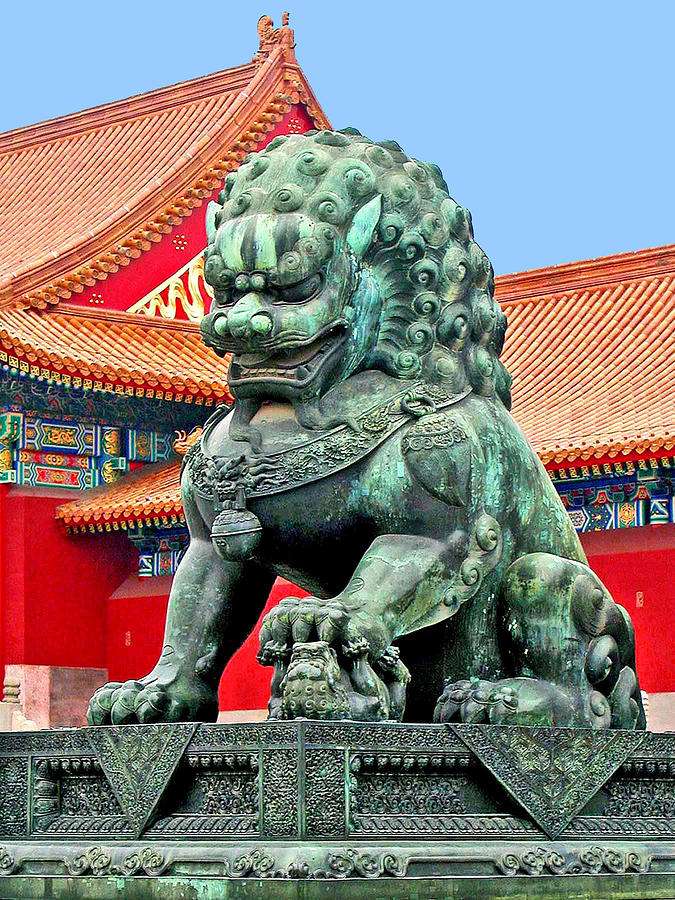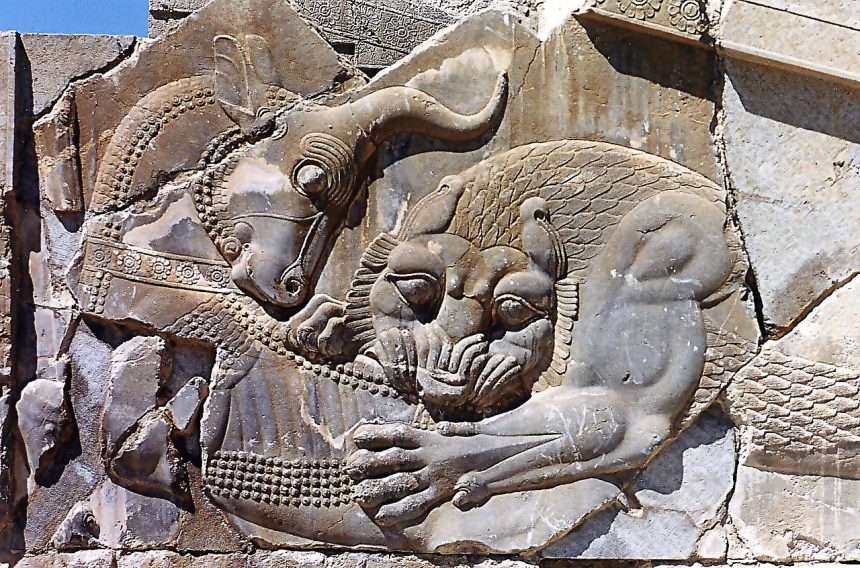By: Trends Editorial Team
Wu Bingbing is an associate professor and deputy director of the Department of Arabic Language and Culture at Peking University and a director of Institute of Arab-Islamic Culture. He received his doctorate in 2003 and started his research on Shiite Islam. He has published a book which is the first academic publication by a Chinese scholar with a focus on Shiite Islam. His research focuses on relations between China and the Middle East, politics of the region and foreign policy.
Dr. Wu, you are the author of the first academic publication by a Chinese scholar about Shiite Islam. Why did you choose the Middle East, particularly Iran and Shiite Islam, as one of your main academic and research interests?
I was in Kuwait nearly 20 years ago, where I met many Iranian friends, and became interested in Iran. That’s how I chose Iran as the main topic of my doctoral thesis.
As an outsider with a great insight into Iran’s history and culture, religion and society, what do you think about Iran’s place in the region and the world politically, geo-politically and economically given all the tension surrounding this region?
I think the Chinese foreign policy toward Iran has clearly shown that we believe Iran is a major power in the region, enjoys global influence, and has a good influence on Middle Eastern politics. Furthermore, I believe that China and Iran’s partnership and cooperation is very important for both countries. This is a comprehensive partnership with a long history that has been further strengthened since 2016, when President Xi’s visited Iran. I think China and Iran’s recognition of one another is not only based on the current economic and political circumstances but also based on their background and history.
If you were to summarize the state of affairs in the Middle East, geo-politically and economically, how would you describe it? How would you describe the Middle East today and what are the current and future opportunities and challenges in this region?
The first challenge in this case is economic development. Considering the young population of this whole area, each reginal state needs to put its focus on social and economic development and to create adequate number of jobs for the younger generation and keep them hopeful toward the future. I imagine this to be a basic necessity for every country in the region. Unfortunately, there is a lot of geo-political competition in this region, therefore social development has not been the main focus. Iran needs to concentrate not only on social development but also on having sustainable projects and an agenda for achievable economic development. The balance between economic growth and social development based on a strong economy should be the solution to many issues.
China believes that there needs to be more regional
cooperation to reduce the tensions and enable the region
to focus more on social development.
Are you optimistic about a resolution to all this animosity such the Iranian-Arab, Shiite-Sunni, etc., historic competitions? Are you overall optimistic that perhaps one day a real peace and understanding will happen in the Middle East to foster the kind of development that you mentioned?
I’m optimistic because if we go back in history, all of these differences were there, but people handled them and coexisted with each other, not only peacefully, but also productively through mutual cooperation. We see many trade routes between these countries, for instance, the Silk Road, and also the intercultural exchange between countries; there are many Farsi words that were loaned by the Arabic language and vice versa, and the same applies to the Turkish language. You cannot change your location and pick your neighbors; you have to live with them. I think the people in this region have the wisdom, experience and motive to handle these issues but it takes time and vision.
How do you see the importance of each country for the other? Are China and Iran truly forming a long-term sustainable strategic partnership? What are your thoughts on the much talked about25-year plan?
I think as two ancient civilizations, we should refer back to our shared history. For example, in China we can see statues of lions in front of many ancient buildings, which were introduced from Iran to China; based on official history books, the Chinese word for lion, “Shizi” is very similar to the word “Shir”.
The ancient Silk Road has also been another main connection between the two countries over the ages. But in current times, we also share a powerful connecting with one another As I previously mentioned, China’s view on Iran has always been a strategically grounded view. Our long-term relations are not only based on trade or economic issues or energy supplies, it is a much more profound connection as we both belong to the same continent, sharing an ancient history. Therefore, the 25-year plan between the countries will be a symbol of a long-lasting partnership based on a strategically planned program.
Do you know much about the details or the real scope of the 25-year plan? The media states that this will be a long-term plan with the potential of 400 billion dollars of investment or financing projects from China in exchange preferential pricing for energy products, etc. Do you have any thoughts on this matter?
For me principles are more important than details in this matter. To be clear, the outcome of this 25-year deal is to achieve trust between both Iran and China in the long-term. We are facing big challenges as we desire not only a regional but a global outcome.
Since the late ’70s and early ’80s China has been focusing on different ways of development which we would now like to share with allies, as every country is unique, we don’t want to impose anything or set limitations.
Iran can benefit from the experiences China has been going through for the last four decades but in its own unique way. In time, we will have a better knowledge of each other, and even learn and benefit from one another. The vision and spirit between the countries are more important than the details.
Despite increasing close relations between Iran and China, real investments by Chinese companies in Iran have not been that substantial and not on par with expectations. Why is that? Besides US sanctions are there some other obstacles on the way of Chinese companies and investors coming to Iran? Is it the lack of information or maybe unfavorable rules and regulations in Iran? What are some other obstacles beside sanctions that are preventing investment by Chinese companies in Iran?
based on my experience I have to explain that as I mentioned in the late ’70s and early ’80s China started a reforming process on how to develop the economy and started from the main zones including Shenzhen and Xiamen which are both considered to be very important industrial cities, then extended the development plan to thirteen coastal cities. Now we are focusing on the central region and starting on the western part. Gradually we hope to achieve a more balanced development in the country. This means that there must be a clear plan not only for the next one, two or even five years, but maybe a plan for the next 20 to 30 years.
This long-term plan will make people decide whether or not to invest, which parts they should invest in and in what magnitude. I haven’t seen a clear development plan for Iran yet regarding this matter; it is not clear whether Bandar Abbas, Jask, Chabahar or Tehran will be the first, second or third to be structurally developed. Based on my understanding there is not yet a solid plan, but maybe I am mistaken and Chinese businessmen have a clear and structured plan. We still have a lack of knowledge about one another. Iran has attracted many Chinese tourists recently due to its good policies such as granting visa on arrival and arranging more flights between the countries.
COVID-19 has slowed down and stopped our social connections
but in the very near future there should be more developments in tourism.
The development of this sector should involve Asian people’s habits and lifestyle and how the locals can collaborate to create a suitable environment for the visitors. China will do the same for Iranians. We should take the steps gradually but strongly towards a steady foundation and cooperation.
The Belt and Road Initiative (BRI) is considered to be one of the largest investment and development projects that the world has ever seen. Can you demystify for us what the key components are? How will it link different countries and regions on its route and facilitate trade? Who are the key countries in this initiative?
During the past four decades China has achieved a high standard of industrial and infrastructure development, from designing highways, airports, ports, railways and industrial zones to developing a new banking system. The main elements of BRI are infrastructure construction, industrialization, finance, and energy. You cannot just pick one of them, you have to have all four. They need to be the main fields and then gradually more elements and more fields can be added such as space science, nuclear technology, high-tech fields, etc.
All these factors could and should be added but the fundamental elements are the four fields that I mentioned. Iran has a very important and strategic location in regards to connectivity. The BRI is an inclusive and not an exclusive initiative. BRI is open to all, it will accept all countries that want to join. In fact the BRI is not unilateral, it’s not even bilateral, it’s more multilateral.
In terms of numbers what is the overall projected investment in the Belt and Road Initiative? Do we know how many countries will be connected? What is the total estimated amount of investment in the initiative?
People think that there are a fixed number of countries, but as I said it is an inclusive initiative. We have seen Asian, African, European, Latin American and Pacific countries join the BRI, and we have signed many bilateral and multilateral contracts and agreements with different countries. It is a network of partnerships and projects. If the project is infrastructural, industrial or energy-based, one can evaluate each one to see how much the investment will be. Like in the region of the Suez Canal industrial park, each separate project can amount to at least a billion USD worth of investments. The total final initiative estimate will be based on different projects, so numbers may vary at the end based on how many projects take place.
Besides physical infrastructures such as roads, railroads, ports, and airports, digital infrastructure seems to play an important role in the Belt and Road Initiative, especially the roll out of 5G technology. What are your thoughts on this since it seems to be the biggest point of contention between China and the US? What is all the fuss about 5G and how do you think the world will go about it, given the divide it is creating between the East and West?
I think especially after the pandemic people will know that Internet services are very important and the Internet is key to real equality between people. Access to stable and fast internet will be a basic demand and that’s the reason 5G or other advanced technologies are playing such a pivotal role in connecting people and countries to one another. More importantly we should be focused on developing smart cities, digital societies, AI and many more new technologies.
Huawei is one of the leading companies in this subject matter. They have signed numerous contracts with many countries based on commercial precepts. Blocking this company from different markets is not based on the principles of free trade but on the hegemonic ideas of some countries. I don’t think that this is going to work because these countries need 5G, and who else can offer cheap and stable services? If you want to block a 5G contract, you need to provide an alternative, which I believe will be very challenging as the alternatives are either too expensive or not mature enough. Based on current market demands of the countries in this domain everyone needs the services offered by Huawei. I think without an alternative we are just going to slow down the progress of the digital society and block the access of people to a better internet service.
It is quite obvious to everyone that the US is being unfair to Huawei because of competitive reasons. Do you believe that the West needs to be more equitable in terms of free trade principles? Will this attitude change or do you foresee more of a division between the East and the West?
I believe due to the basic social and economic demands of world markets unless a better alternative is offered this stance cannot continue in this direction. Whatever happens in the coming years, countries around the globe will all soon need to have access to 5G Internet; where are they going to find service suppliers and infrastructure developers? That is the real challenge.
China’s phenomenal growth in the past few decades has awed economists and sociologists, and placed it among the top economies in the world. Achievements in military and political influence by China has also agitated politicians worldwide. In regard to the possible emergence of a new superpower, many accuse China of colonial aspirations in places like Africa. Are there any merits to this? How do you address such concerns? Is it inevitable for any superpower to eventually and perhaps unintentionally become a colonial power?
I have to point to President Xi’s 2016 speech delivered in Cairo during which he said that there is no vacuum that China needs to fill, because every place has its own local government and economy. It is in everyone’s best interest not to cause a situation where if let’s say the US withdraws from a region there will be a power vacuum. It is very clear that in the current world we live in, trade and investment should create mutual benefit and a win-win situation for parties involved.
In other words, you should not take away the resources from the local people and dominate them. It is not like 200 years ago, and therefore that mentality will not work. We buy from Iran, Iran buys from China, we buy from African countries and African countries buy from us. During this process countries develop their own sectors, especially manufacturing, create more jobs, and increase the minimum wage, which enables people to afford to purchase more consumer goods. I think we now live in a world where it’s a basic rule that you cannot become wealthy by making others poor.
For example, in Iran you have your energy sector, you need investment and need workers for it, but you cannot permit a foreign state to come and take everything. But in the same environment if you don’t have enough foreign investment, can you continue to trade with the outside world? You cannot. That’s why in the BRI, we develop airports, railways, highways, and ports in other countries. If those countries have better infrastructure their economy will benefit first and later China can benefit as well through mutual trade.
What is next for you in terms of research writing, academic work and traveling to this part of the world again. Any kind of business endeavors in the pipelines? What is next for Dr. Wu?
Personally, I still want to have a better understanding of the regional countries. They are experiencing fast growing changes every month. There are big events happening, so we must follow the changes and have a clear understanding of them.
China should develop a stronger partnership with the countries in the region including Iran. Considering how we could make this partnership more comprehensive and strategically feasible in the long-term is always a topic for scholars, intellectuals, and people in business to pay attention to.






